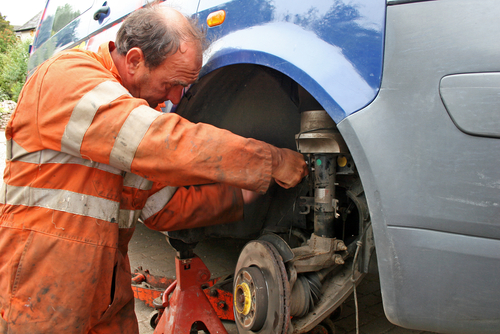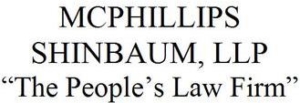Negligent Tractor Trailer Repairs Results in $18 Million Jury Verdict to Injured Driver
Colin Lacy, a 31-year-old truck driver now confined to a wheelchair as a result of negligent repairs to his tractor trailer, was recently awarded $18.79 million by a Mobile County Circuit Court jury for his expenses and pain and suffering. Defendant Empire Truck Sales, LLC, was found to be liable to Mr. Lacy for its failure to properly repair the antilock braking system on Mr. Lacy’s 2004 Freightliner truck. Mr. Lacy, a resident of Mobile, AL, hauled used oil for FFC Environmental until the accident.
Mr. Lacy was instructed by his employer to bring his truck to Empire for preventive maintenance in June of 2014. However, Empire failed to reattach a lateral control rod and, while unknown to the parties at the time, damaged the braking system while working on the truck. Mr. Lacy noticed vibration in the steering column, and took the truck back to Empire later that month for repairs. He was picking up the truck from said repairs on July 14, 2011, the day of the crash, and noticed shortly after driving away that the Antilock Braking System light had come back on. When Lacy called Empire to report this, Empire told him that the light would soon turn off on its own, and that he shouldn’t worry about it. As Mr. Lacy continued his drive to Florida, rain began to fall, and when the truck’s steering column began to vibrate on the wet roads, Mr. Lacy applied the brakes to stop the vibration. Since the Automatic Braking System was not functioning, the brakes locked, sending the truck into the center median, and causing the truck to roll. Mr. Lacy’s seatbelt had also failed to latch, causing him to experience additional injuries. Lacy spent over two months in the hospital after the accident, and doctors do not believe that he will ever regain use of his legs. Prior to the award, Mr. Lacy had not yet been able to afford to modify his home to accommodate a wheelchair, with his attorney noting that he has been unable to shower at home since 2011.
Ultimately, Mr. Lacy’s attorneys brought a suit for against Empire Truck Sales for their negligent repairs and Indiana Mills and Manufacturing, Inc., the manufacturer of the defective seatbelt, for product liability. A mechanic has a duty to a customer to exercise care in ensuring that repairs to a customer’s vehicle are complete and safe. The duty is higher where the mechanic is repairing parts of the vehicle with a greater role in the vehicle’s safety, such as the vehicle’s braking system. Heightened duties of care also apply to the repair of large commercial vehicles under federal regulations, since accidents involving tractor trailers, and ones carrying potentially harmful liquids, can be so destructive. Here, Empire was on notice after the first set of negligent repairs that Lacy’s truck was not in proper working order. Empire was again notified that something appeared to be wrong with the vehicle when Lacy called to report that the ABS light had turned on again. Empire failed to uphold its duty of care, and is now being required to compensate Lacy for the consequences of its negligence.
Since the accident occurred in Florida, the court applied that state’s laws, but since both the defendant and plaintiff were residents of Mobile, Alabama, the trial occurred there. Under Alabama state law, if a jury determines that multiple defendants are liable to a plaintiff for damages, both defendants are equally liable to the plaintiff, regardless of the degree of responsibility each had for the harm the plaintiff experienced. However, in Florida, liability is apportioned according to the size of each defendant’s role in causing the plaintiff’s harm. The jury determined that Empire was 80% responsible for Mr. Lacy’s injuries, and that Indiana Mills was 20% responsible. Indiana Mills settled out of court prior to trial, and will make no additional payments to Lacy.
During jury deliberations, the attorneys for the parties reached what is called a “high/low” settlement. If the jury returned a verdict that Empire was not liable for Mr. Lacy’s damages, the parties agreed that he would still receive a $2 million award. The parties also agreed that, if the jury returned a verdict of liability, the most that Mr. Lacy could receive would be $14 million, to be paid within 30 days, and that the parties would not appeal the award. And so, even though the jury returned an $18.79 million verdict, Mr. Lacy will receive $14 million.











